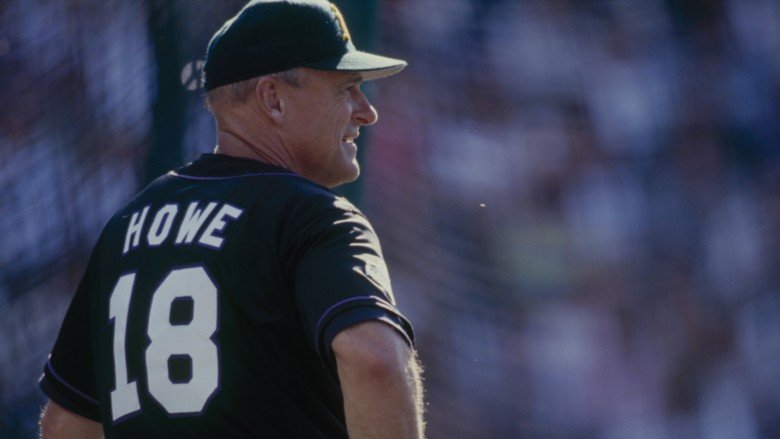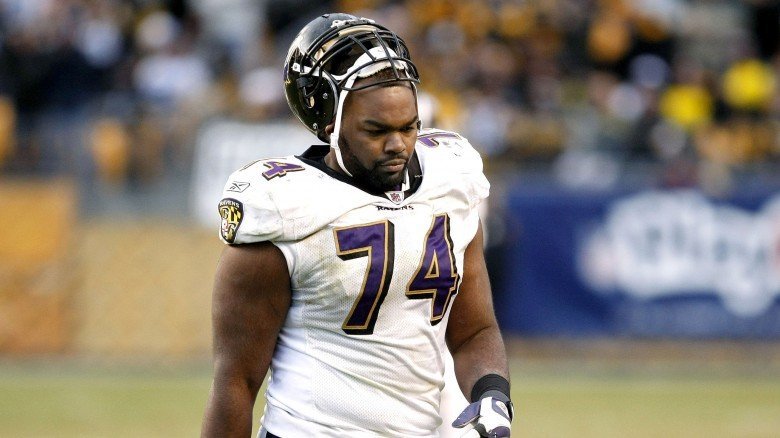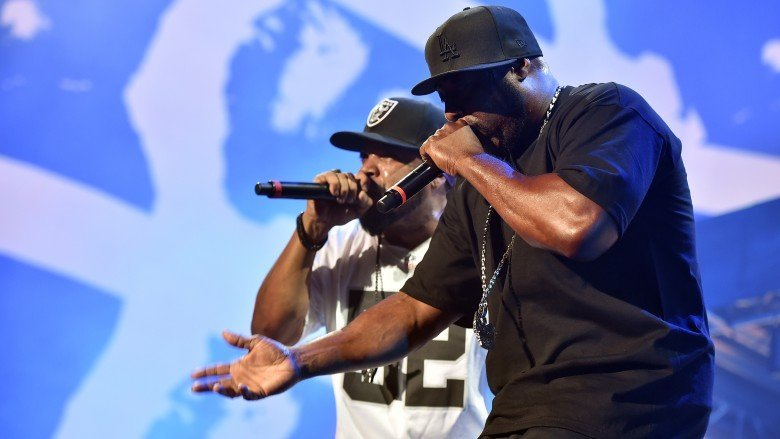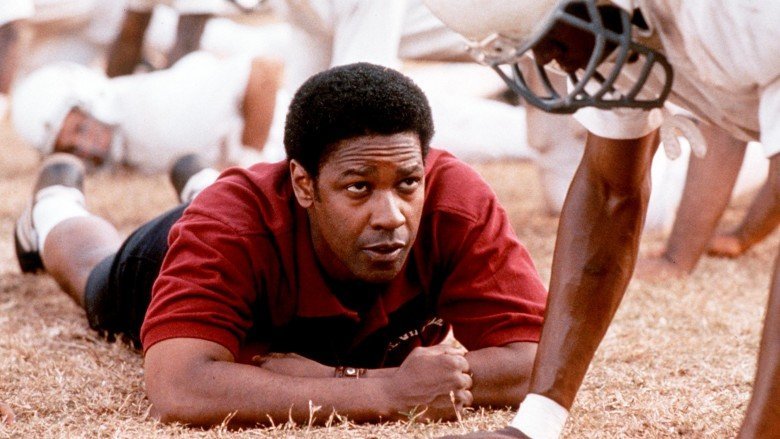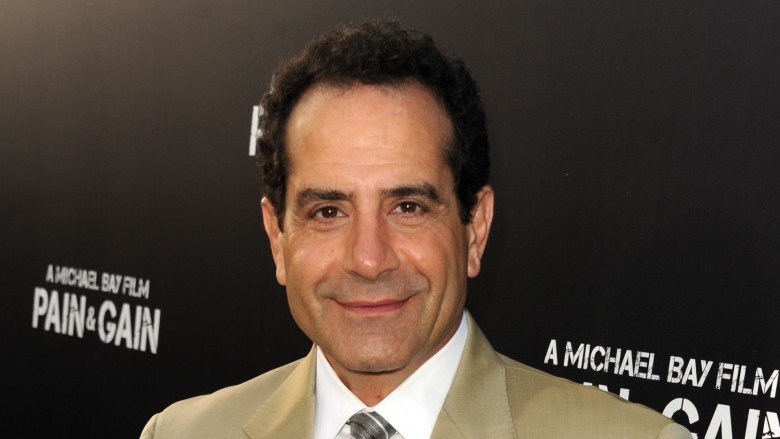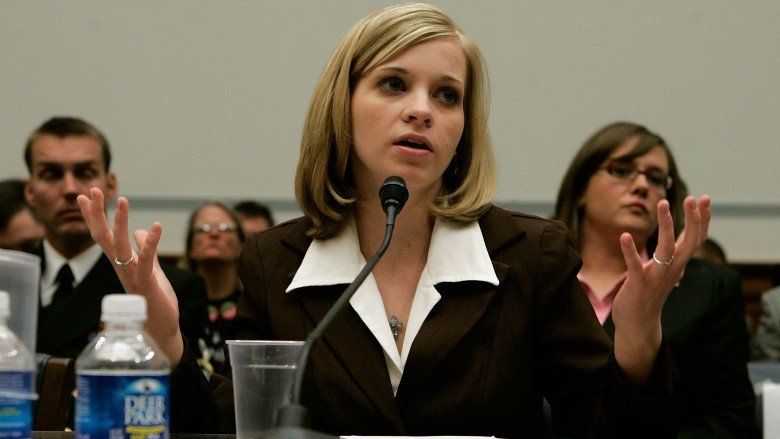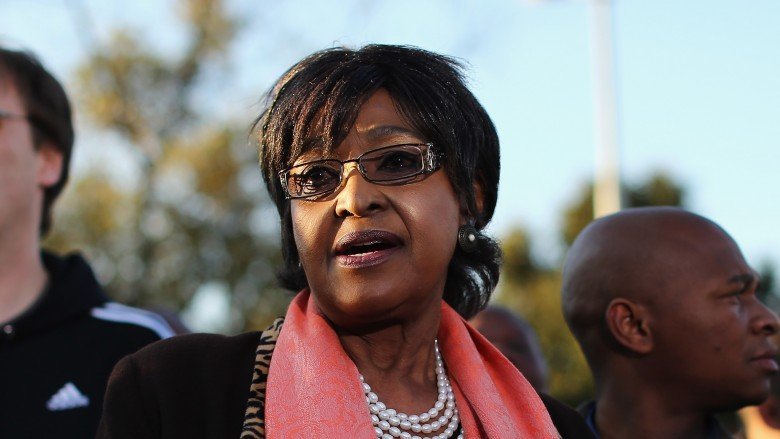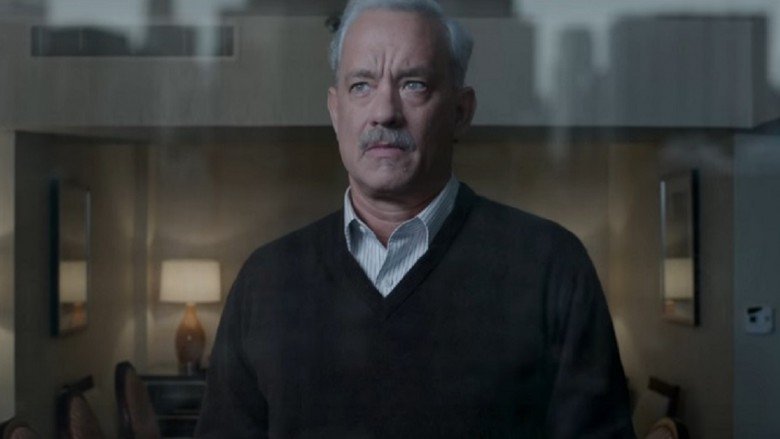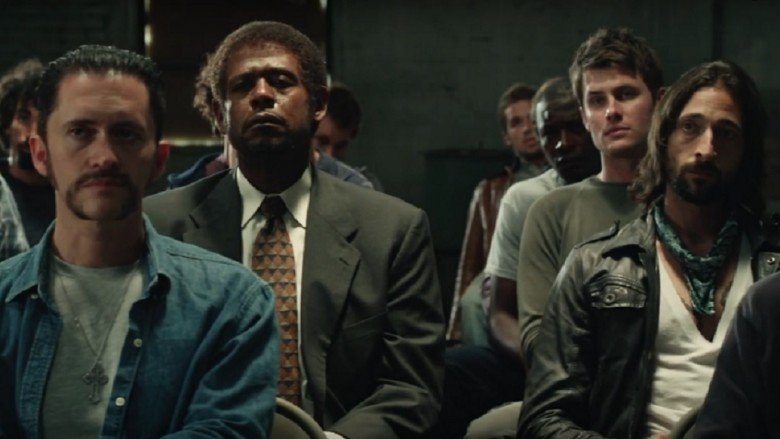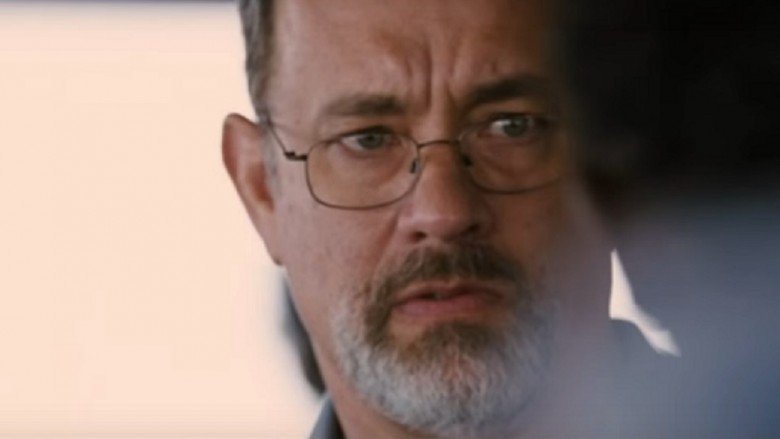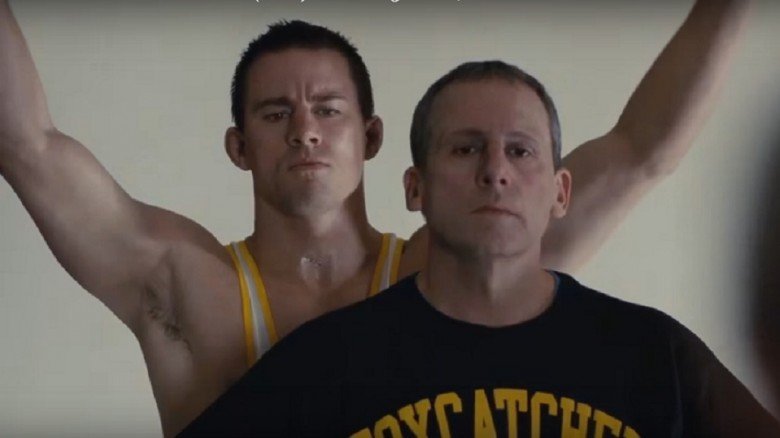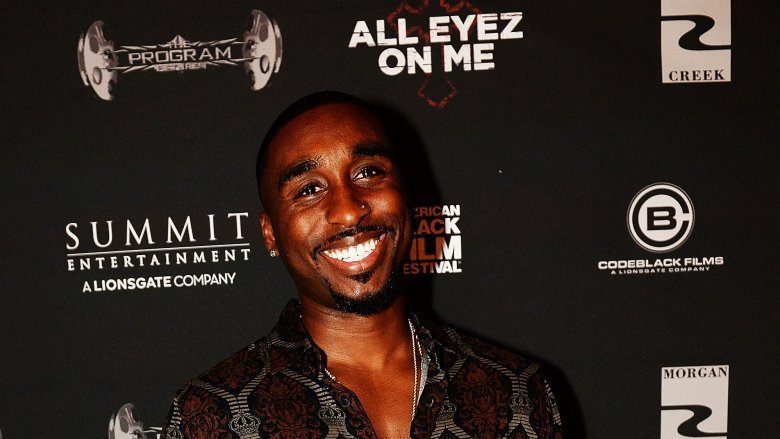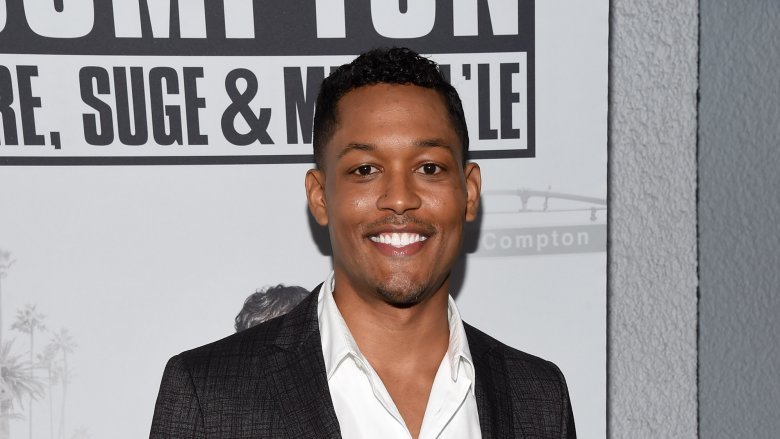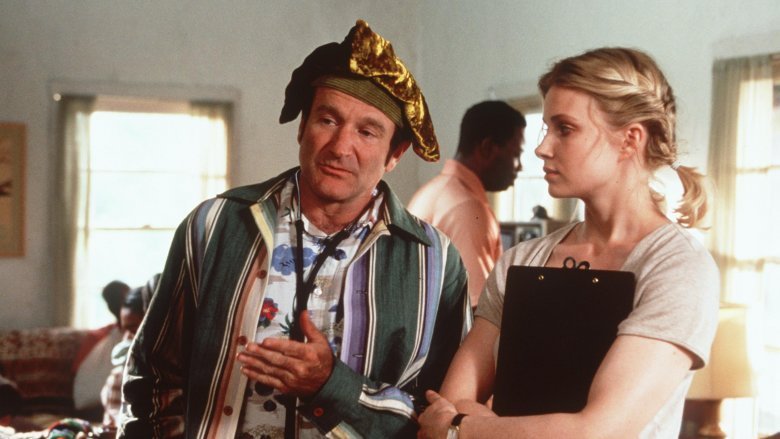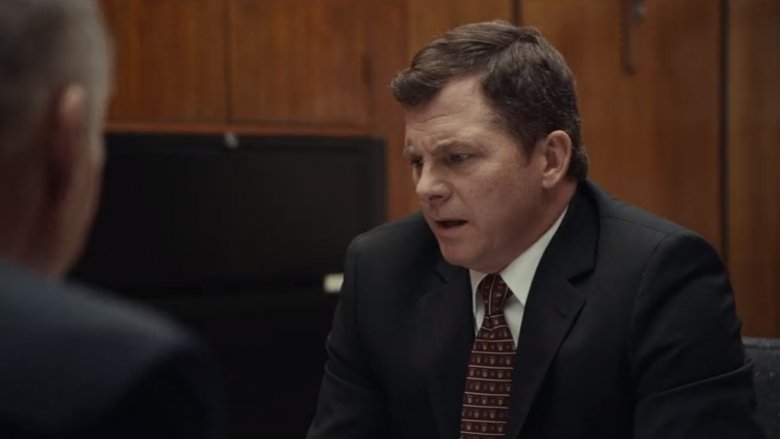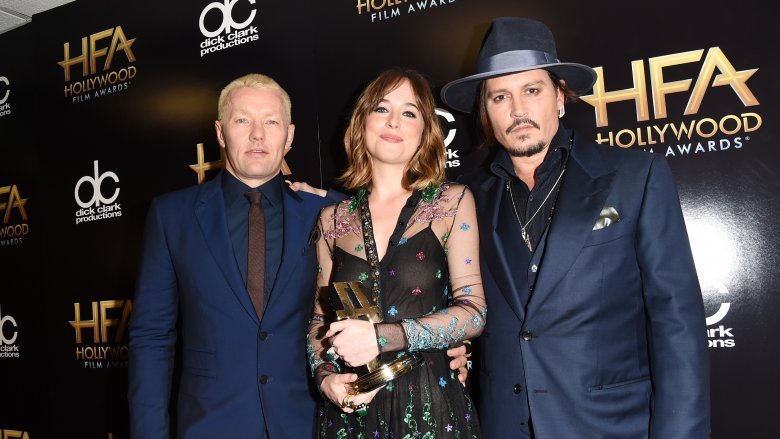Movies That Angered Their Real-Life Characters
Admit it: you've thought about how cool it'd be to have a movie based on your life. You've wondered who would play you, and the only possibly problem is that the studio executive would get fired for green-lighting such a boring film.
In general, a movie about you'd be pretty great, right? Well, not necessarily. Just how great it'd be depends largely on whether or not the people behind the cameras cared about little things like "accuracy" and "the truth."
Moneyball
If you're unfamiliar with the story of Moneyball, it's a retelling of how Oakland Athletics general manager Billy Beane reshaped the way professional baseball scouts and front offices put together a competitive roster. Let's ignore that Oakland hadn't finished worse than second in their division in the three seasons leading up to 2002 (the year depicted in the film), or that the starting pitching rotation had three Cy Young–caliber arms (including that year's Cy Young winner, Barry Zito) and the team also featured the league's MVP, in shortstop Miguel Tejada. Because the movie sure as hell ignored it, so who are we to break tradition?
The movie was critically acclaimed, but one person in particular hated the thing with a passion: former Oakland manager Art Howe. Howe was portrayed in the movie by Philip Seymour Hoffman, and it apparently angered the A's manager that he was being played by one of the greatest character actors of all time because it made him look fat. He went so far as to call his portrayal "character assassination."
But more than that, Howe was upset at the way he was portrayed as nothing more than an old school baseball dinosaur the game was seemingly passing by thanks to brilliant minds like Beane. One of the big subplots involving Howe was also about a contract dispute, which Howe says was completely fictitious. And going back to Beane's brilliant new way of thinking, that's another aspect where Howe took umbrage. As Howe points out, the film makes it appear that monitoring someone's on-base percentage (that is, obviously, the number of times they get on base in a game) is revelatory. To summarize Howe's own take on on-base percentage monitoring: "Duh."
The Blind Side
If you're a great football player, chances are pretty high that you're going to wind up becoming a household name (at least among sports fans). That is, unless you're an offensive lineman. For the most part, the big uglies up front go ignored in favor of the flashier players they protect, like the quarterbacks and running backs. So you'd think that when The Blind Side came out, making Michael Oher the most famous offensive tackle in the world, he'd be pretty stoked ... right? Not remotely, as it turns out. Oher has gone so far as to say that the film hurt his career.
The Blind Side is about a magical white woman who adopts a giant young black man and teaches him the ways of football, setting him on a path to college and, ultimately, NFL stardom. Thank God for Sandy Bullock! Only, as Oher has said time and again, that's not remotely how things went down. Yes, the Tuohy family took Oher in, and they have indeed become his family. But in the film, Oher is portrayed as a gentle giant who's unfamiliar with football but tests high in "protective instincts" (because, sure, that's a thing on standardized tests), so he's put on the football team and taught how to be great by the little white woman. In real life, by this point, Oher had already been playing football for years.
In the past year or so, Oher has come to terms with the film, by saying "that's not me" and treating it, more or less, as an inspirational fictional story that kind of resembles his own life.
Straight Outta Compton
Quick: name the rappers involved with the groundbreaking group N.W.A. There's Dr. Dre, and Ice Cube, and Eazy E, and ... and ... someone else, probably? Actually, there were two someone elses, and one of them was less than thrilled with the way he was portrayed in the film Straight Outta Compton.
DJ Yella and MC Ren are the two guys who got the short end of the stick when it came to the movie, because, well ... obviously. Everyone knows Dr. Dre and Ice Cube, and Eazy E is one of the most famous gangster rappers of all time. And while MC Ren thought the movie was great overall, he was less than thrilled that his characterization amounted to "glorified extra."
You can't really blame him, either. It'd be like making a movie about The Beatles and focusing exclusively on John and Paul while pretending Ringo was only occasionally around. As the New York Times film review said, "If you didn't know the N.W.A. members MC Ren and DJ Yella before, you're not likely to know them after, as they're inconsequential to this telling." From the early going, MC Ren felt that the film was disrespecting him and his contributions to one of the most famous (and infamous) rap groups of all time. At the end of the day, MC Ren simply felt that his legacy was ignored, and any credit for the group's success was given to its three most famous members. But hey, Ren, look at the bright side: at least you're not stuck doing terrible family comedies like some of your brethren.
Remember the Titans
Ah, Remember the Titans. The movie that taught us that racism can be cured through football and Motown music, and the moment in time when Hayden Panettiere stopped getting any taller. It's no secret that a lot of the movie was fudged a bit, because this is a Disney film, after all. For instance, the high school in question had been desegregated about five years prior to the season (1971) depicted in the movie, and while there was some racial tension in town (this was Virginia in the early 1970s, after all), it wasn't nearly as prevalent or violent as the movie suggested when it came to the football team and the coaches.
But according to one former real-life member of the TC Williams Titans, there was a major antagonist that the film seriously mischaracterized as a hero: Herman Boone, played in the film by Denzel Washington. At least, that's what Greg Paspatis, who played for the Titans in 1977, had to say. Now, obviously, since he played six years after the season depicted in the film, you won't remember this particular Titan. But Paspatis was decidedly livid with how his former coach was portrayed.
According to Paspatis, Boone was the biggest jerk who ever walked the streets of Alexandria, Virginia, and before the decade was over, he was forced to walk away from his coaching job when his players mutinied. So what we've got here, according to a former kicker for the Titans, who later became a volunteer statistician for the school and a local sports historian (so he does speak with some authority on this particular subject), is a disgraced former coach who was pretty widely hated by his players, elevated to legend status by Denzel Washington and Mickey Mouse. Seems fair.
Pain and Gain
Look, we're not going to pretend that any film directed by Michael Bay should be taken seriously, let alone be held up as a beacon of historical accuracy in film. But, at a mere 49 percent on Rotten Tomatoes, Pain and Gain is, remarkably, the third-best-reviewed film he's directed over the years (behind only The Rock and 13 Hours). It stars Mark Wahlberg and The Rock, and tells the ostensibly true story of some Miami bodybuilders who get mixed up in a life of crime, to comedic results. Only, in real life, there was nothing funny about these thuggish criminals, and there was certainly nothing funny about the film's starring trio kidnapping and torturing them.
In the movie, the character they kidnap is, as played by Tony Shalhoub, an unrelentingly terrible person, so we guess you're supposed to be okay with him being brutalized? In reality, however, that wasn't remotely the case. The real-life victim in question was a man named Marc Schiller, who later filed a lawsuit against Paramount Pictures for the way he (and this crime) were portrayed. Paramount settled with Schiller for "an undisclosed amount."
Schiller, at the time of his kidnapping, owned an accountancy firm and a deli, and his ordeal began when he broke off business dealings with a friend named Jorge Delgado, who was becoming increasingly under the influence of Daniel Lugo (Wahlberg's character in the film). The often coked-up bodybuilders took advantage of the moderately wealthy Schiller, kidnapping and extorting him, and very nearly killing him. We can't imagine why he was less than thrilled with the way it was portrayed. Sounds like a laugh riot to us!
Saving Jessica Lynch
You probably remember the story of Jessica Lynch, right? The American soldier who was captured and kept as a prisoner of war in Iraq, and whose rescue later became the subject of a made for TV movie on NBC called Saving Jessica Lynch? Well, while Lynch was taken prisoner, and she was a soldier in Iraq, and she was ultimately rescued, that's about where the parallels end between fact and fiction. And Lynch herself would be the first one to tell you that. See, Lynch was less than pleased with how both she and the rescue mission were portrayed, with enormous movie liberties being taken to heighten the tension and excitement level of how things played out.
It turns out, according to Lynch, that the Iraqis had tried (unsuccessfully) to give her back to the Americans earlier. And when the rescue operation found her in the hospital where she was being held and treated, there were precisely zero Iraqi soldiers there. No one resisted, and the entire "rescue" operation amounted to a group of Americans strolling into a hospital and taking Lynch out of there without anyone saying a word against their efforts.
Now, don't get us wrong, Lynch absolutely views the soldiers who came to get her as her heroes. It's never fun to be a prisoner of war, even if your captivity amounts to being in a hospital bed with no enemy soldiers anywhere to be found. News accounts and the film played up her own heroism, as well, which bothered Lynch even more, since she didn't want to be held up as a symbol, particularly when she insisted that everything being said about her was grossly overstated. She didn't ask to be a hero, and doesn't want to be portrayed as a hero. But, really, when has that ever stopped Hollywood before?
Winnie
Nelson Mandela is widely regarded as one of the greatest and most iconic men of the 20th century. It's not really much of a surprise, then, that someone in Hollywood would decide that, particularly after several successful films about Nelson himself, it'd be a good idea to tell the story of his wife, Winnie. Winnie Mandela is an extraordinary woman in her own right, from taking on an enormous amount of social work even before she met her future husband, to later holding several powerful positions in the South African government. She wasn't immune to controversy, but she's most definitely a woman worthy of having her story told.
Only, she really didn't want to have her story told. So you can imagine her irritation with the film Winnie, which starred Jennifer Hudson as the titular real-life woman. So against the film was Winnie Mandela, that she tried to stop it in its tracks before it was released. And you can see her point, really. As she said, she's still alive and well, and while she's a public figure, it's got to be kind of annoying to hear that a movie studio is going to make a movie about you but not even bother to get either your permission or your input.
Mandela had originally asked to simply see the script before the film went into production, but for some bizarre reason, the studio refused. In response to a threat of legal action, one of the producers said the screenplay was "well researched and [written] without any interference." That, given in response to the woman the script was about, is kind of like meeting someone and assuring them you know more about their life than they do, because you heard stories from very reliable sources. We're guessing, at the end of the day, Mandela was still pissed but at least slightly satisfied when the film absolutely bombed with critics.
Sully
It's a scientific fact that everybody loves Tom Hanks, and the man he portrays in 2016's Sully is a bona fide hero. Capt. Chesley Sullenberger III was the pilot who pulled off the Miracle on the Hudson, so named because it was one of the most insane emergency landings ever attempted, and it went off without a hitch. The film shows us a riveting account of the near-disaster, then details the National Transportation Safety Board hearings in the aftermath—during that the heroic pilot was railroaded by antagonistic investigators who are convinced that the plane could've been landed safely at one of two airports. Sully's name is finally cleared after a drawn-out battle and multiple simulations, and the evil investigators are forced to admit that they really just hate heroism.
Okay, so we're exaggerating, but not much—and if the film's plot had been true to the actual events, it would have been over in half an hour. There was never any significant doubt as to whether Sully made the right call. The first set of simulations, shown in the film to constitute damning evidence that the emergency landing was unnecessary, showed just the opposite, and the final report praised both Sully and the crew for their heroism. The real NTSB investigators were none too happy about this, accusing director Clint Eastwood of making manufactured villains out of them for the sake of dramatic tension and stating their hope that the film wouldn't cause real pilots to expect such unfair treatment. Now-retired lead investigator Robert Benzon complained that the film had hurt his reputation, while putting its level of realism "somewhere between Sharknado 2 and Sharknado 3." His words, not ours.
Walk the Line
Walk the Line is considered to be among the better biopics of the modern era, largely due to its powerhouse acting. Joaquin Phoenix channels Johnny Cash to an impressive degree, and Reese Witherspoon won the Academy Award for Best Actress for her portrayal of June Carter Cash. But Kathy Cash, Johnny's daughter by first wife Vivian Liberto Distin, was so upset by the film's portrayal of her mother that she walked out of a family-only screening five separate times. Apparently, this is the number of times Vivian appears onscreen.
Cash, who is played in the film by a young Kerris Dorsey, objected to her mother coming off as a complete psycho who hates Johnny's career and whose defining characteristic is "shrill." She says this is untrue: "She loved his career and was proud of him until he started taking drugs and stopped coming home," she said in an interview. Distin died of lung cancer shortly before the film's release. Ironically, Johnny pledged his faithfulness to her in the song that gives the film about his love affair with another woman its title. Johnny Cash was a legend, but nobody ever accused him of being a sweetheart.
Notorious
Aside from her fling with the late Notorious B.I.G., rapper Lil' Kim is mostly remembered for being brash, short, and half-naked. When the B.I.G. Biopic Notorious was released in 2009, those who knew the legendary MC were mostly pleased—but not Kim. She began trashing the film before she had even seen it, saying that the screenplay was inaccurate and that she felt like she was being "played" when she was interviewed by the screenwriters—and it only got worse once she got around to watching the movie.
Kim complained that her relationship with B.I.G. came off as shallow and only based on sex, and the actress who played her (Naturi Naughton) was "terrible." She went on to accuse B.I.G.'s mother Voletta Wallace and ex-wife Faith Evans of undue influence, prompting responses ranging from "that's just sad" (Evans) to "get a life" (Wallace). Not everybody took her to task, however. Sean Combs told MTV that Kim had "every right to feel that way," and agreed that she was more than B.I.G.'s hookup buddy. Combs could always set the record straight by making his own biopic, but considering his production style, this would mean simply re-releasing Notorious in its entirety with a different title.
The Experiment
The 2001 film The Experiment was based on the infamous Stanford prison experiment, which had participants play the roles of prisoners and guards in an attempt to shed light on the psychological effects of power over others. The results were not pretty, as the "guards" wasted no time in lording their authority over the "prisoners," subjecting some of them to psychological abuse and humiliating punishments like cleaning toilets and peeing in buckets. The man running the experiment, psychologist Phillip Zimbardo, allowed this to continue for six days before calling it off at the insistence of his (very sensible) girlfriend. The experiment pushed the boundaries of ethics—but never did devolve into brutal violence and rapes, as depicted in the film.
Zimbardo, president of the American Psychological Association at the time of the film's release, was not happy. "It makes Stanford and me and psychology look bad," he said, noting that audiences tend to accept film versions of historical events as accurate and that the film fails to even explore the real experiment's purpose. The filmmakers employed the "hey, nobody said this was supposed to be accurate" defense—which is a little suspect considering the film opens with the words, "inspired by incidents that occurred during a psychological experiment at Stanford University." Hey, if filmgoers don't know that "inspired by" means "bears zero relation to," it's their own fault!
Captain Phillips
Tom Hanks—everybody loves him, we've covered this. Everybody, that is, except for the crew of the Maersk Alabama, the shipping vessel hijacked by pirates in an event dramatized by the 2013 film Captain Phillips. In the film, Captain Richard Phillips (Hanks) has his ship boarded by pirates, managing to heroically outwit them and force them to leave on a lifeboat, which is complicated when they turn the tables at the last minute and force Phillips onto the lifeboat with them.
Much was made in the film of Phillips's close adherence to protocol: running anti-piracy drills, sticking only to approved waters, and going by the book once his vessel was boarded. But a lawsuit filed against the shipping company by the Maersk Alabama's crew tells a slightly different story: Phillips, they say, was a sullen, arrogant man who never ran a single drill and absolutely insisted on cutting through known pirate-infested waters to save time, despite the pleas of his crew. Moreover, many crew members expressed the opinion chief engineer Mike Perry, who had only a small part in the film, was the real hero of the incident—he attacked and detained the lead hijacker at one point, trying to use him as a bargaining chip to secure Captain Phillips's release.
Nine crew members filed a lawsuit against the shipping company upon their return home. It was settled out of court with undisclosed terms but had the effect of scaring the entire shipping industry straight. New safety regulations and procedures were quickly implemented in 2013 as a direct result of the suit, and go figure: in 2014, the number of attacks by Somalian pirates stood at 0, saving the industry billions. It's almost as if giving the slightest damn about employees is good for business.
Everest
In 1996, eight climbers died while climbing trying to climb Mt. Everest in an infamous incident that was immortalized in the 1997 book Into Thin Air by Jon Krakauer, a writer and world-class climber who survived the ill-fated trek. Many assumed that the 2015 film Everest was based on Krakauer's book, but it wasn't. He sold the film rights to Sony the same year of the book's release, resulting in a crappy TV movie that nobody watched. In fact, Krakauer wasn't even consulted by the producers of Everest or the actor (Michael Kelly) who played him, which he thinks is because director Baltasar Kormákur personally has it in for him—and judging by the way he's portrayed in the film, he might be right.
Krakauer's main issue is with a scene in which a guide comes to his tent to ask for help rescuing the struggling team members, who are caught in an unexpected blizzard. Krakauer refuses, saying he is "snow blind"—a conversation he says never happened, and that doesn't even make sense: "Not even Sherpas could go out. I'm not saying I could have, or would have. What I'm saying is, no one came to my tent and asked."
Kormákur responded that he was simply trying to show the helplessness of the situation, but he didn't clear up why he chose to do so by inventing cowardly words to put in Krakauer's mouth. But it's not like they tried to make the whole thing out to be Krakauer's fault—except they sort of did, implying that the guides and Sherpas were taking unnecessary chances because somebody was there writing about the climb. And this is precisely why we here at Grunge do our jobs on the couch, in our underwear.
Foxcatcher
The 2014 film Foxcatcher told a story even stranger than fiction: that of John DuPont, millionaire heir to the DuPont family fortune, who became interested in Olympic wrestling and set up a training facility known as Foxcatcher Farm (there may be some relation to the movie's title there, we're not sure). He recruited Olympic gold medalists Dave and Mark Schultz to train the next generation of Olympic wrestlers, a plan that went seriously awry when a mentally unstable DuPont shot and killed Dave in 1996.
Despite being heavily involved in the film's production, Mark Schultz (played by Channing Tatum in the movie) was a tad bit unhappy with his portrayal upon the film's release—particularly its implication that he had been close with DuPont, and maybe even sexually close. He took to social media to call director Bennett Miller a "punk" and a "liar," among other, more unprintable things, saying the film had ruined his legacy and threatening to destroy Miller's career or, you know, just kill him. And then he did an abrupt 180 a few months later, saying that he had been "temporarily insane," and calling the film a "miracle" and Miller "the greatest director ever" (no, seriously). And that was the end of—wait, no, Schultz was talking to the press again a few months after that, complaining that the film had glossed over seven months of his life and focused only on the darkest parts of the story. To clarify, Schultz won the gold in wrestling, but we're thinking he also could have done well in the 100-meter flip-flop.
All Eyez on Me
All Eyez on Me tries to embody the life and purportedly temporary death of one of music's most insightful rappers. Starring Demetrius Shipp as Tupac Shakur and bad spelling as its title, the 2017 film hit theaters on the late Shakur's 46th birthday. Sadly, that's the only context in which the words "hit" and "All Eyez on Me" belong in the same sentence. The film received neither critical nor California love, scoring a paltry 16 percent on Rotten Tomatoes and a middling 6/10 on IMDb.
The film did garner support from acclaimed parachute-pants enthusiast MC Hammer, as well as the marijuana maharaja, Snoop Dogg. However, as CNN noted, figures like Jada Pinkett-Smith just couldn't get jiggy with it. Politely skewering the film via Twitter, Pinkett-Smith accused filmmakers of fabricating a scene wherein Shakur read her a poem and claimed they invented a farewell between the two. She also denied the occurrence of an argument portrayed in the film, according to Rolling Stone, calling the movie's laxity with the truth "deeply hurtful."
Celebrated lyricist 50 Cent also offered his two cents, describing the movie as "trash" and bovine excrement. The movie's original director John Singleton –- who also knew Shakur personally –- panned the filmmakers like a pizza. Lead actor Demetrius Shipp took such criticisms in stride, according to the BBC. Shipp claimed Shakur's family "loved" the film, further suggesting that only the people who knew Pac mattered. That is, unless those people hated it.
Surviving Compton: Dre, Suge & Michel'le
Straight Outta Compton proved that despite assertions to the contrary, exactly zero people forgot about Dr. Dre. That said, the movie's memory faltered when it came to Dre's history of hitting women. That changed with the 2015 Sony production, Surviving Compton: Dre, Suge & Michel'le. As the name suggests, the movie delves into Dr. Dre's rocky romance with Michel'le, a '90s singer with a 9-year old's speaking voice.
Michel'le has gone on record about their relationship, depicting Dre as a brutal abuser who shattered her nose and held her at gunpoint. And according to The Independent, Dre had something to say about that –- namely, "stop saying things about that." Incensed about the film's depiction of him brutalizing his longtime girlfriend, he demanded the film be pulled and promised to sue. In an attempt to foster skepticism about his portrayal, the creator of Beats by Dre (a really poor name choice in retrospect), pointed out that over the years he dated her, Michel'le never pressed charges against him and allegedly didn't seek medical help.
Of course, most incidents of domestic assault go unreported, so a lack of criminal charges wouldn't be surprising. However, this isn't the place to litigate the past. Apparently, Mr. Beats also opted not to litigate, despite the film airing on Lifetime against his wishes. However, the Doc can take comfort in knowing that celebrities have Teflon reputations, even when they're flat-out guilty of brutalizing women, because life's super fair.
Patch Adams
Patch Adams is a 1998 dramedy in which the late great Robin Williams played the eponymous Hunter "Patch" Adams. Adams was a dedicated doctor who merged the worlds of medicine and clowning, two things known for enriching people's lives and causing crippling phobias. Williams, himself a comedy legend, sounded ideal for the role. However, critics had some unsavory things to say about the film. Variety derided the movie as "shamelessly sappy and emotionally manipulative." And a New York Times review chided the film for lowbrow toilet humor and an apparent insistence on fashioning the genie from Aladdin into an Ace Ventura knockoff.
The harshest criticism came from the real Patch Adams himself. In an interview published by Renaissance Universal, the doctor disparaged the film for allegedly making his children weep with displeasure. He felt it created a hollow caricature of him while stepping around all the grueling effort he put into actually helping people. When discussing the film's real-world impact, Adams pulled no punches: "We put up fake, meaningless heroes to completely divert intelligence from our population. So, our kind of work, if anything, is denigrated." He went on to lament that the film did nothing to bolster his real-life efforts to heal the sick. Apparently, depicting Adams as a doctor who joked about self-diddling and put enema bulbs on his face didn't leave a positive impression.
Spotlight
In an age where news outlets consistently get pilloried for alleged bias and fakery, Spotlight provides a noble portrait of journalistic courage and integrity. Boasting bigtime actors like Mark Ruffalo, Michael Keaton, and Rachel McAdams, the Oscar-winning movie highlights (spotlights?) how the Boston Globe exposed heinous sexual abuse and a dastardly cover-up by the Catholic Church. A picture this serious demands a standard of honesty worthy of the journalists it represents, but the truth had to suffer for cinema's sake, apparently.
Specifically, Spotlight paints school representative Jack Dunn as morally ambiguous, if not downright villainous, through the use of fictional dialog. As per the Boston Globe, the movie includes a scene in which Dunn, a then-spokesperson at Boston College, makes a highly questionable statement. Speaking to a Boston Globe reporter, his character utters, "It's a big school, Robby, you know that. And we're talking about seven alleged victims over, what, eight years?" At first blush, the line leaves Dunn looking pretty dismissive about molestation. At worst, he looks like the Voldemort of concealing sex crimes.
Dunn sued for defamation. The filmmakers cried foul, claiming that the scene simply showed Dunn arguing that administrators may have been ignorant of the abuse. However, that seems somewhat undercut by Dunn's character accusing journalists of "reaching" for a story. Ultimately, the filmmakers reached for their wallets, according to the New York Times. In 2016, they apologized to Dunn and paid him an undisclosed sum as part of a settlement.
Black Mass
Black Mass tells the blood-soaked story of James "Whitey" Bulger, a Boston crime boss who murdered and manipulated his way to power. Played by avid hat wearer Johnny Depp, Bulger comes off as having all the charm of a balding, dead-eyed killer, which seems fitting. Critics agreed, hailing his performance as a breath of fresh air amid the stinkfest of goofy acting roles he's become increasingly known for. However, some individuals indicted Depp's acting and the film itself as crimes against storytelling.
Among Black Mass's detractors was the real Whitey Bulger, who refused to even watch the film, according to People. Voicing his dismay through defense attorney Hank Brennan, the mob don indignantly ripped his onscreen incarnation as little more than a parody. In Brennan's words, "Johnny Depp might as well have been playing the Mad Hatter all over again." The lawyer continued, blasting FBI corruption as a tremendous "scourge" that the movie ignored. Because why show Bulger strangling a woman and removing her teeth (things he actually did) when filmmakers could have just smeared the cops?
Former Bulger enforcer Kevin Weeks also disapproved. As per The Daily Beast, Weeks acknowledged all the murders in the film as fact but denied everything else. According to him, Bulger "never swore" or yelled at his men and the gangsters never fought each other. He also took offense at Black Mass making him look like a "knuckle-dragging moron." It's much better to look like a homicidal Einstein.
The Wolf of Wall Street
The Wolf of Wall Street stars enormous piles of drugs that assume the forms of Leo DiCaprio and Jonah Hill. Based on the duplicitous rise of corporate conman Jordan Belfort, the movie takes you on an intoxicating odyssey of unabashed decadence, but not everyone appreciated the picture. According to Andrew Greene, the picture is nothing short of cinematic slander.
If Andrew Greene doesn't ring any bells, don't worry. The Hollywood Reporter mockingly pointed out that his character is barely a blip on the film's radar. But in Greene's mind, The Wolf of Wall Street unfairly picked on him, depicting him as a dope-swilling degenerate who arranged illegal transactions for Belfort. Moreover, his alleged onscreen equivalent, Nicky "Rugrat" Koskoff wears a toupee and gets treated like the verbal equivalent of a porta-john. In one scene, Belfort and associate Donnie Azoff (played by Jonah Hill) crack jokes about choking Koskoff to death and question his sexuality with extremely colorful language.
Greene took those digs and indignities as a huge affront and sued for $25 million, which doesn't sound remotely like a cynical cash-grab. Paramount Pictures, Red Granite Pictures, and other entities named in the suit sought to have the case thrown out, according to The Hollywood Reporter. That effort fell flat, however, and a New York judge even ordered Leonardo DiCaprio to testify about the film. However the case turns out, Greene will probably end up more infamous for suing than for anything The Wolf of Wall Street implied.
